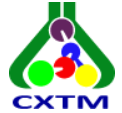Speaker
Description
Phytochemicals are essential components of traditional knowledge systems in complementary and alternative medicine, nutraceutical, food supplements, and pharmaceuticals. Bioactive secondary metabolites can be classified as phenolics, terpenes and steroids, and nitrogen compounds including alkaloids. Each of these classes contains a very large and diverse set of compounds that have a very wide range of biological activities.
The use and benefits of bioactive phytochemicals largely depend on a thorough understanding of their structure and properties. Hence, it is necessary to establish methodology for efficient extraction, identification and quantification of the active compounds present in the extracts and plant material that should be further studied for their biological activities. The extraction processes are based on the difference in solubility of the target compounds for which a variety of solvents and their mixtures can be used. During extraction of target bioactive compounds from plant material, it is important to minimize interferences from compounds that may co-extract with the target compounds and to enable maximum yield and prevent decomposition of important metabolites.
Separation, identification and quantification of secondary metabolites is a complex analytical task owing to their huge number and diversity between various classes of compounds and numerous representatives within each class. The choice of method depends on the sensitivity required for the purpose at hand, the complexity of the matrix related to the time spent on sample pretreatment prior to analysis, the required chromatographic resolution and the preferred detection method. Liquid chromatography coupled to mass spectrometry (LC/DAD/MS) is the technique of choice because it is highly effective for characterizing complex samples that would be difficult to analyze by conventional LC/UV analysis. Results from characterization of bioactive secondary metabolites from the groups of flavonoids, phenolic acids and alkaloids will be discussed and specific points from using tandem mass spectrometry for their identification and quantification highlighted.



